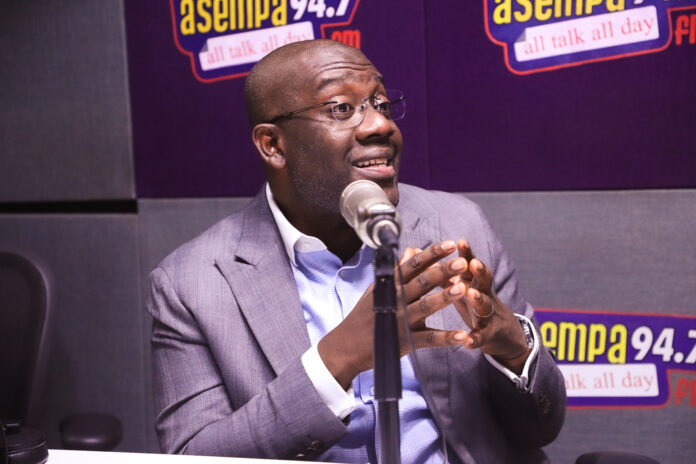The Member of Parliament for Ofoase Ayirebi and Ranking Member on Parliament’s Committee on Economy and Development, Kojo Oppong Nkrumah, has called on the government to go beyond merely suspending the controversial 8% ‘Dumsor’ levy and scrap it entirely.
Speaking in response to the government’s recent decision to halt implementation of the energy sector levy, Mr. Oppong Nkrumah argued that the move exposes deeper flaws in Ghana’s fiscal planning.
He said the suspension confirms what the Minority had warned from the outset — that the levy would raise fuel prices and was premised on flawed assumptions about global oil price stability.
“We are asking that government should scrap it altogether because the government doesn’t really need this levy,” he stated.
The levy, intended to raise GH¢5.7 billion to support energy sector interventions, drew strong criticism from the public, industry players, and the Minority, which questioned its timing and necessity.
According to Mr. Oppong Nkrumah, the real issue lies not in revenue generation alone but in the government’s broader fiscal strategy.
He pointed to an earlier projection by the Minority that the removal of selected taxes without corresponding expenditure cuts would create a GH¢6 billion hole in the 2025 budget — an estimate that closely mirrors the GH¢5.7 billion shortfall the levy sought to fill.
“Let me give you some history. In 2017, the NPP administration removed about 17 taxes, and we lost the revenues from them. We tried to close the gap, but because we could not conclusively do it, our buffers were limited. So when global shocks hit, we were left at the losing end.
And that’s why we’re saying to our friends in government, do not repeat this mistake. We should use this period not for blame or praise, but to conduct a comprehensive and transparent review of the revenue lines as a country, with the view to developing sustainable, reliable fiscal resilience.”
Mr. Oppong Nkrumah stressed that the government must seize the opportunity to initiate a comprehensive evaluation of the efficiency and equity of the country’s revenue mobilisation mechanisms, emphasising the need for a transparent, sustainable, and citizen-sensitive approach to public finance that enhances Ghana’s long-term fiscal resilience.
“This is not just about scrapping a levy. It’s about building a revenue system that is agile, fair, and capable of delivering tangible results for the Ghanaian people,” he added.
“We on the Minority side will support any such effort with the lessons we have learned, with the ideas and our suggestions. Ghana doesn’t need just the scrapping of these levies. Ghana needs levies that are sustainable, that make sense and that deliver results for her people.
And we on the Minority will do our best to contribute to those ideas,” he concluded.



